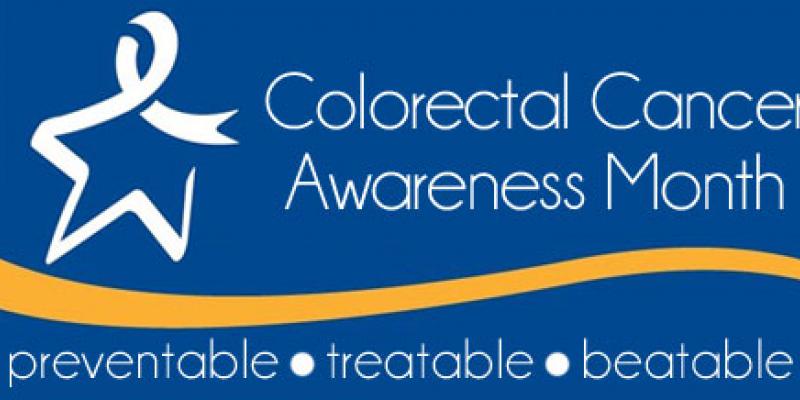March has been designated National Colorectal Cancer Awareness Month, and while colon cancer is not a comfortable topic for many, it is essential to raise awareness as it is the second leading cause of cancer death in Canada. Ontario has one of the highest rates of colorectal cancer in the world- 9,245 people in Ontario will be diagnosed with colorectal cancer and about 3,194 people will die from the disease in 2020. It is estimated that one in 14 men & one in 15 women will develop colorectal cancer, and one in 27 men and one in 31 women will die of it. But there is good news – it is also highly treatable if detected early through screening.
Colorectal cancer refers to cancer of the colon (large bowel) or rectum. There is no single cause of colon cancer. Nearly all colon cancers begin as noncancerous (benign) polyps, which slowly develop into cancer. If polyps are removed in their early stages, colorectal cancer can be prevented. You have a higher risk for colon cancer if you:
- are older than 60,
- are African American or of eastern European descent
- eat a diet high of red or processed meats,
- have cancer elsewhere in your body,
- have colorectal polyps,
- have inflammatory bowel disease,
- have a family history of colon cancer, or
- have a personal history of breast cancer.
Cancer in the colon or rectum can take up to 10 years or more to develop to an advanced stage. That’s why it’s very important to make regular screening for colorectal cancer a part of your routine health checks. During the early stages, a person may have few or no symptoms. As colorectal cancer progresses, the following symptoms may occur:
- a change in your bowel movements,
- bloody stool,
- stools that are narrower than usual,
- stomach discomfort,
- unexplained weight loss, and
- fatigue and/or vomiting.
While these symptoms can be related to other conditions, it’s important that you speak with your doctor.
Some lifestyle changes may help to reduce our risk:
Consider the following healthy choices and take some relatively simple steps to improve your overall health;
- Start small amounts of regular exercise.
- Quit/don’t start smoking.
- Take vitamins such as calcium and folic acid may reduce your chances of developing colorectal cancer.
- Manage your weight. Obesity is thought to increase the risk of developing colorectal cancer, particularly in women.
- Reduce your alcohol intake.
- Know your family history – If a first-degree relative (parent, sibling or child) had colorectal cancer you are at increased risk.
- Beginning at age 50, make colorectal cancer screening a part of your routine health checks.
What if you don’t have a family physician and feel that you should be checked? A Fecal Occult Blood Test (FOBT) kit can be provided by your pharmacist. The FOBT is a simple, self-administered test that can be done in the privacy of your own home. It can detect even trace amounts of blood in your stool. Most family physicians recommend to their patients, who are between the ages of 50 and 74 and at average risk of colorectal cancer, to have their FOBT done every two years. Take care of yourselves and each other.







